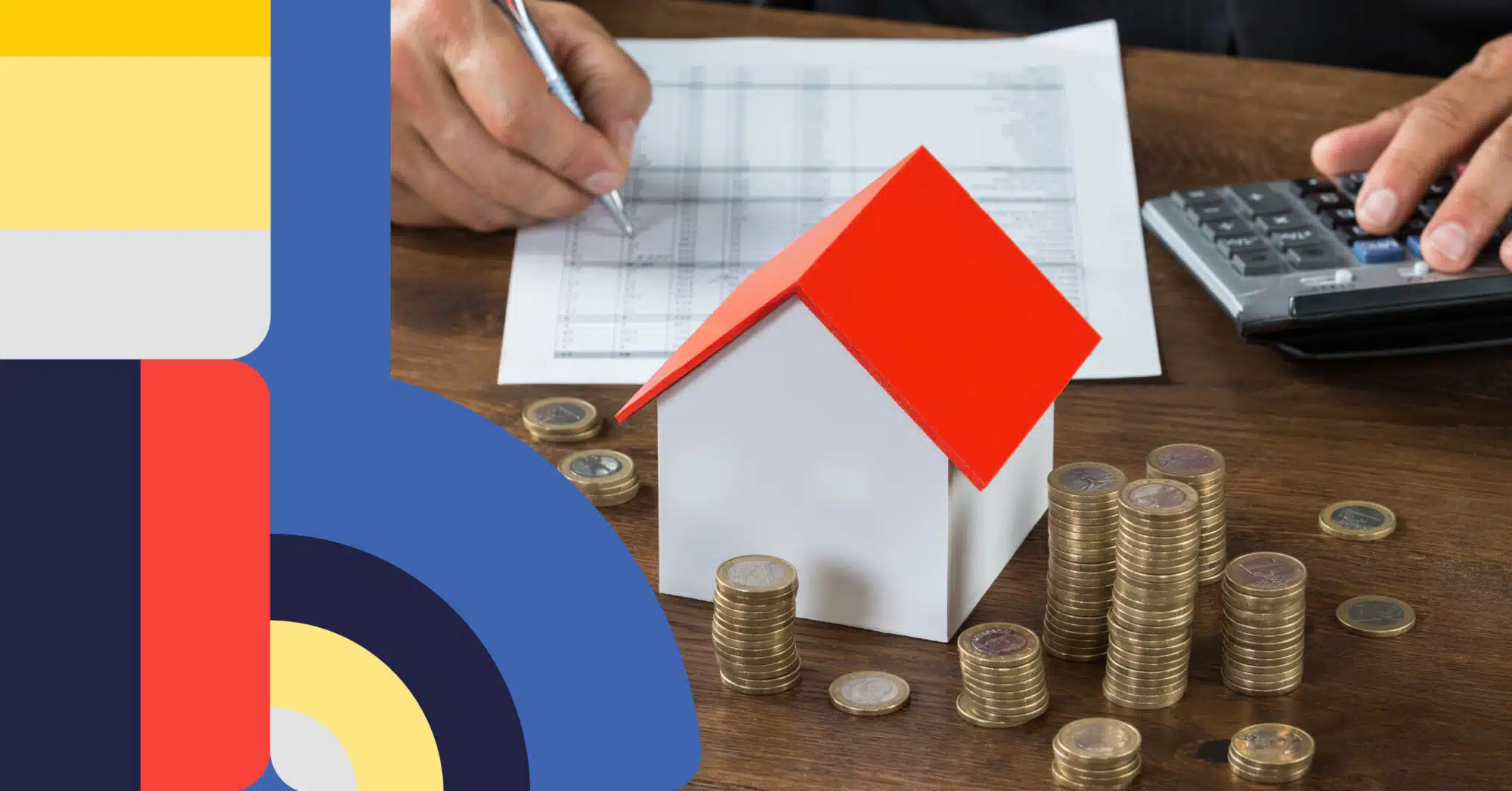Pros & Cons of Renewing Your Mortgage Early

Table of contents
Notice: Effective November 21, 2024, mortgage transfers between lenders will be exempt from requalification. Transactionally insured (those who originally purchased with less than 20% downpayment) and uninsured mortgages (without increasing mortgage balance or amortization) will no longer be required to stress test when changing lenders at maturity. Going forward, only new purchase and refinance mortgage applications must be qualified through the stress test.
If your mortgage term is coming up for renewal, you’ll need to renegotiate a new rate at maturity. Your existing lender is required to send you a renewal notice at least 21 business days before your current mortgage term ends.
So, how early can you renew your mortgage without penalty? Most lenders offer the option for early mortgage renewal up to 120 days before the end of your term without penalty. Some lenders may even allow up to 180 days.
Your lender’s initial renewal offer may not always be the best for your financial circumstances or even the lowest rate you could negotiate. You must review your options each time you renew and be prepared to renegotiate to ensure you get the best rate and terms.
Key Takeaways
- An early renewal could help you secure a better interest rate and reduce monthly payments.
- Planning at least 120 days before your maturity date allows you to compare rates with other lenders and negotiate with your current lender.
- Rarely will your lender’s first offer for early renewal be their best.
Does Renewing Your Mortgage Early Save You Money?
When you renew your mortgage early, you choose to renew with your current lender before the end of your term. The primary motivation for doing this earlier than the end of your term is usually to save money, but this only works in certain situations.
Shopping around during the early renewal period could allow you to take advantage of lower interest rates or better terms by switching to a new lender or help you renegotiate better rates and terms with your current lender. Depending on the type of mortgage you have, there could be penalties for breaking the term too early, and should you choose to switch to a new lender, there may be fees to discharge your mortgage.
If interest rates have dropped since the beginning of your term, locking into a lower rate through an early renewal can result in cost savings since you’ll start paying a lower interest rate before your term ends. This saves you the difference between your current and new interest rates for the time remaining on your term. If rates are anticipated to increase before the end of your term, early renewing could help you lock in a lower rate before they begin to increase.
If interest rates have increased since your term started or you anticipate rates will drop more over the coming months, early renewing may cost you money. Riding out the rest of your term may be the best option before locking in.
When to Renew: Early vs On-Time vs Late
As you approach the end of your current mortgage term, timing your renewal can help you maximize your savings. It’s important to begin understanding mortgage market trends and planning your renewal at least 4 months in advance.
This gives you the time required to monitor interest rates and allows you to shop around and compare the rates and terms of other lenders.
Early Renewal
Early renewal occurs when you opt to renew your mortgage with your current lender and lock in a rate before the end of your current term. Most lenders will allow you to renew early without penalty up to 120 days in advance.
It may be beneficial to renew early if interest rates are increasing, as it allows you to secure current mortgage rates if you anticipate they may be higher in the future. If interest rates have fallen since the beginning of your term, renew earlier to realize interest cost savings sooner.
When renewing, you may also choose to change the length of your new mortgage term to better align with your goals. For example, you could renew with a 3-year term instead of 5 because you anticipate selling your home in 3 years.
On-Time Renewal
An on-time renewal occurs when you renew your mortgage at the end of your term. Typically, you will begin this process 21 days before your maturity date so that the paperwork can be processed in time for your renewal date. However, it may be beneficial to wait and renew at the last moment before your maturity date if interest rates are predicted to drop further.
Waiting to renew also allows you to explore different lenders and mortgage options, ensuring you get the best possible deal should a switch provide better cost savings or terms. You should allow at least 30 days for your mortgage to be fully transferred to another lender. Be sure to renew your mortgage to an open rate (higher) to avoid a penalty, or else your mortgage will auto-renew to a closed 6-month rate if you don’t provide renewal instructions to your lender.
Late Renewal
A late renewal is not recommended. If you fail to renew your mortgage by maturity, your lender may automatically renew you to an open or closed short-term rate, which typically comes with much higher interest rates. This can lead to increased mortgage payments and higher interest-carrying costs. However, once this happens to your mortgage, you’ll have the same options as an early renewal.
Want to save thousands of
dollars on your renewal?
Renew with nesto and you can.
Pros of Renewing Your Mortgage Early
An early mortgage renewal can offer several advantages that primarily have a positive impact on your financial situation.
| Pro | Why? |
|---|---|
| Secure a lower interest rate | Lock into a lower rate if rates are on the rise or your current terms rate is higher. |
| Reduce mortgage payments | A lower interest rate can reduce monthly payments. |
| Avoid rate hikes | If rates are increasing, renewing early can mitigate the impact of paying a higher rate. |
| Financial stability | Locking your rate early gives you a clear picture of your future mortgage payments, which can help with long-term financial planning. |
Cons of Renewing Your Mortgage Early
While early renewal can offer many benefits, depending on the market, it can also have a few drawbacks that may not make it worthwhile.
| Con | Why? |
|---|---|
| Your lender may not offer the best rates | Rarely will your lender’s first offer be their best. Renewing early could lock you into a higher rate than you could get if you switched to a new lender. |
| Missing out on lower rates | If you lock in early and interest rates drop, you could pay a higher rate than if you waited until closer to the end of your renewal period. |
| Higher mortgage payments | Higher interest rates will increase mortgage payments and reduce your cash flow. |
| Potential penalties | Renewing too early could trigger a substantial penalty for breaking your term early. Understanding your lender’s early renewal options is important to ensure you fall within the timeframe they allow penalty-free renewals. |
The Auto-Renewal Mortgage Rate Letter: Should You Accept?
It’s generally not in your best interest to simply sign your lender’s renewal offer since lenders rarely offer the best interest rates up front at renewal. Signing and sending back the first offer may be the most convenient option. However, it will come at higher rates than what you could get if you negotiated with your current lender for something better or shopped around and considered switching to a new lender.
Frequently Asked Questions (FAQs)
What’s the earliest you can renew your mortgage?
The earliest you can typically renew your mortgage without incurring a penalty is up to 120 days, though some lenders will allow up to 180 days before your term ends. This varies between lenders, so you should check with your specific lender to determine how early you can renew to avoid penalties.
Can I negotiate my mortgage renewal when I renew early?
When renewing early, you can renegotiate your mortgage renewal rate and terms. Whether renewing early or at the end of your term, it’s always advisable to shop around and see if better deals are available or try to work with your current lender for a better deal.
What happens if my mortgage term expires?
If your mortgage term expires and you haven’t renewed, your lender will likely automatically renew you into an open or closed short-term rate, which could come with much higher interest rates than the ones you would have been offered to renew.
Final Thoughts
Renewing your mortgage early can be a strategic move, depending on market conditions. Small changes to your interest rates before the term ends can have a large impact on the life of your mortgage.
The most important thing to remember is that your mortgage is worth negotiating every time it’s up for renewal. A lot can happen over your term, so it’s always important to research and weigh your options.
If your mortgage is due to renew, contact a mortgage expert, and let us help you find the best rate and terms.
Ready to get started?
In just a few clicks, you can see our current rates. Then apply for your mortgage online in minutes!















